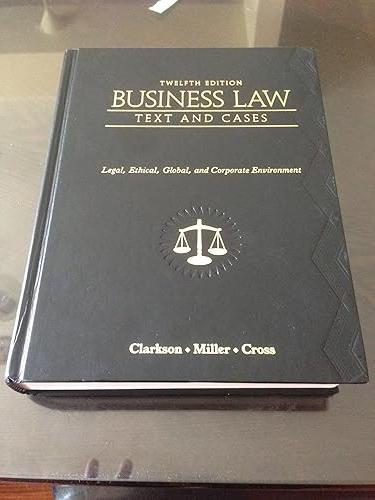Question
Do you agree with the following? Conclude yes or no and explain why. In your explanation, be sure to provide the rule and apply the
Do you agree with the following? Conclude "yes" or "no" and explain why. In your explanation, be sure to provide the rule and apply the law to the facts.
The issue is whether Terry was denied his right to procedural due process. The Due Process Clause is a constitutional right protected under the 5th and 14th Amendments "prohibiting the federal government and the states from depriving a person of life, liberty, or property, without due process of law". To constitute procedural due process, it requires that "before the state may impair a person's life, liberty, or property interests, it must give him/her 1) notice and 2) a reasonable opportunity to be heard. Here, when Terry was 16 years old, his father petitioned the court and had Terry committed to a secure mental institution. This resulted in Terry being committed to a secure mental institution until the institution determined that Terry no longer posed any danger. Terry was deprived of his own liberty, involuntarily. The decision was between the court and his father's petition, Terry was not given notice, nor a reasonable chance of hearing. However, at the time this happened, Terry was not an adult who had reached his legal age, it would be necessary to know if there are any specific laws or regulations that apply when considering procedure due process violations for teenagers (whether the parents can act on Terry's behalf). Another factor to consider is whether Terry has the reasonable mental capacity to bring out the due process issue for himself because of his "delusional and violent fantasies" condition. Terry could argue that now that he is an adult, he has reached legal age class and should be protected with his own right to procedural due process. He could argue that he is entitled to a post-deprivation hearing in this situation as a result of depriving him of his liberty. Also, according to the unconstitutional conditions doctrine, "the government cannot indirectly produce a result that it could not command directly". In Procedural Due Process, "no duty of deprivation required if the government retains discretion". Here, the state law leaves it to the discretion of the mental institution to determine whether a patient's improved mental state warrants petitioning the court for the patient's release, this puts a duty on the state as this is unconstitutional in deprivation of Terry's liberty. Therefore, I think Terry will prevail.
Step by Step Solution
There are 3 Steps involved in it
Step: 1
ANSWER Yes I agree that Terry was denied his right to procedural due process The rule of procedural ...
Get Instant Access to Expert-Tailored Solutions
See step-by-step solutions with expert insights and AI powered tools for academic success
Step: 2

Step: 3

Ace Your Homework with AI
Get the answers you need in no time with our AI-driven, step-by-step assistance
Get Started


